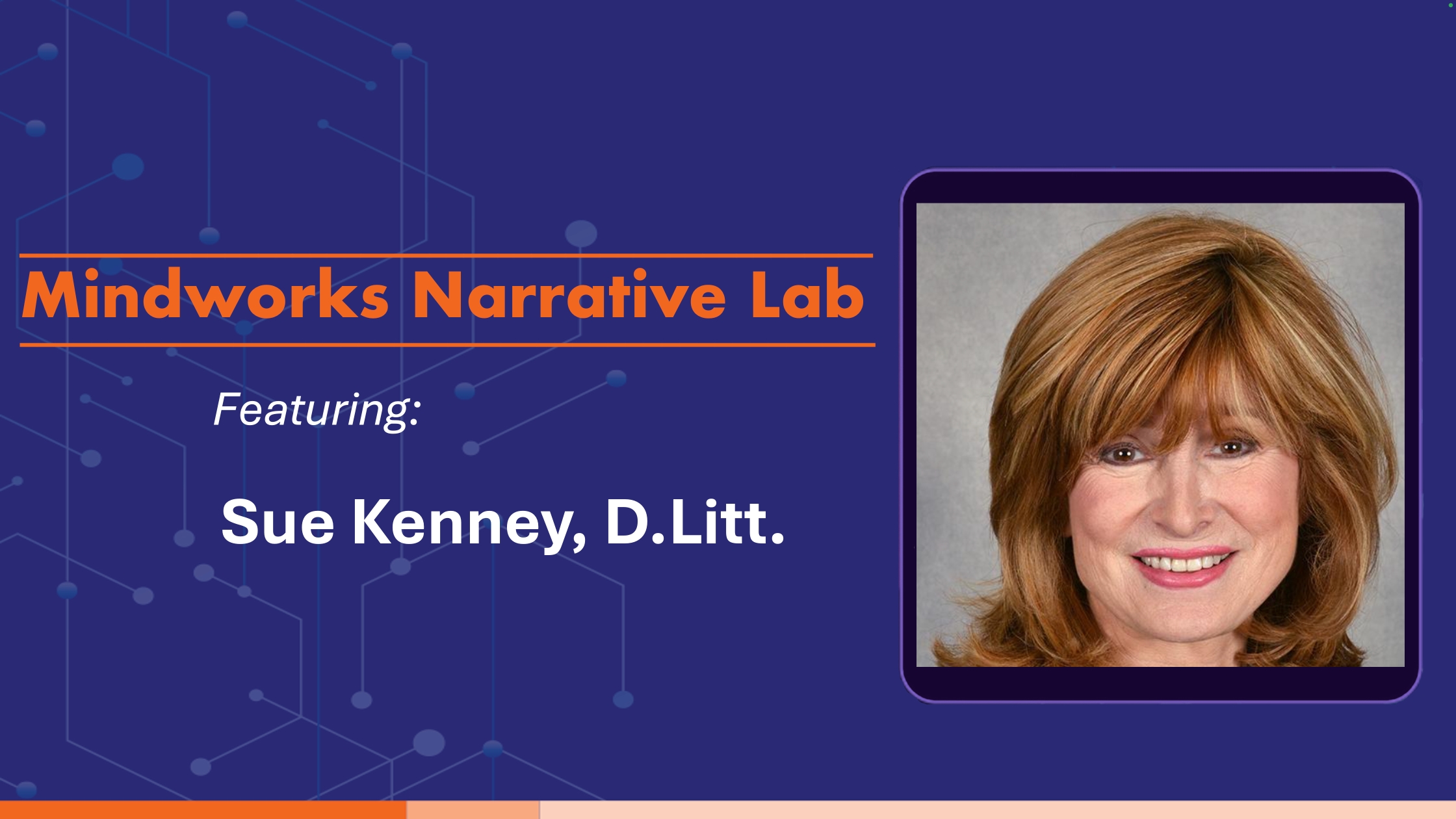
Introducing Narrative Medicine to High School Students
Click here to listen to a Mindworks Narrative Lab presentation featuring Sue Kenney, D.Litt, who developed the first narrative medicine course for high school students at Immaculate Heart Academy in Bergen County, New Jersey.
Sue explores the integration of narrative medicine into high school education, emphasizing its role in fostering compassion, empathy, self-reflection, and deep listening. Through reflecting on third objects such as literature, film, and art and writing exercises students engage with personal narratives that shape their identity and understanding of others.
The presentation highlightsnarrative medicine as a tool for social justice, addressing biases in healthcare and the need for patient-centered care. Student projects, such as personal reflections on illness and gender bias in medicine, demonstrate how storytelling can challenge systemic issues and promote resilience.
This talk demonstrates how narrative medicine is not just for medical professionals—it is a powerful pedagogical tool that helps young students:
- Develop empathy and compassion
- Improve communication skills
- Reflect on identity and social issues
- Engage critically with different forms of storytelling.
Explore narrative practices pedagogy in coming presentations through Mindworks Narrative Lab as we explore:
- Philosophical Foundations of Pedagogy
- Learning Theories and Cognitive Development
- Narrative Practices Training and Professional Development
- Curriculum Development and Instructional Design
- Teaching Methods and Strategies
- Assessment and Evaluation
- Classroom Management and Learning Environments
- Educational Technology and Digital Learning
- Sociocultural and Equity Issues in Education
- Comparative and International Education
 Welcome to Narrative Mindworks!
Welcome to Narrative Mindworks!